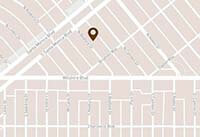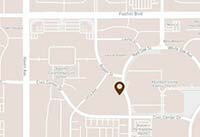Food is a source of comfort for many people. And eating delicious food is definitely one comforting act. Partaking in our favorite everyday dishes is a pleasurable indulgence. The comfort and pleasure of food are even multiplied during holidays when a feast accompanies family gatherings and get-togethers. Food, in short, is therefore, more associated with positive memories.
But sadly, there are days when consuming food is associated more with the stresses in our daily lives. Who hasn’t eaten chocolate just because they were feeling bad?
If this happens from time to time only, you don’t have to feel guilty about it. However, if this happens regularly, you might be stress eating. And if you do that all the time, you will end up with not-so-good health!
If you can relate to the above paragraph, and you’re wondering how to stop yourself from eating due to stress, keep on reading.
What is stress eating?
Basically, stress eating is when you’re using food to cope when you feel bad. It has nothing to do with you being actually hungry. Instead, you eat because you want to suppress any negative feelings.
This happens because of, well, because of stress. When you get stressed, your adrenal glands release a hormone called cortisol. That in turn increases your appetite, becauses your brain is telling you to eat so that you’re prepared for any harmful situation.
Another name for stress eating is emotional eating. That’s because this particular behavior is also associated with negative emotions. For example, when you get into a serious argument with a loved one, reaching for that bag of chips, ice cream bar, juicy burger, or slice of pizza may bring you immediate relief.
As mentioned above, if it happens occasionally, you can cut yourself some slack as it is not necessarily a bad thing. But if you turn more and more to emotional eating instead of dealing with your situation, doing so will not fix the problem. In fact, stress eating can make you feel worse. Stuffing yourself with a lot of sugar, for example, will eventually make your mood crash, and you’ll feel all your negative emotions once again before long.
It can also have a negative impact on your physical health as the food that we typically turn to during times of stress does not provide us with the nutrition that we need. Instead, they are empty calories that only add to our weight. You won’t get any vitamins or anything that is crucial to us being and staying healthy.
How do I know if I am an emotional eater?
The following are some indications that you are a stress eater:
- During periods of stress, you notice that you tend to eat, even when you are not feeling hungry.
- You turn to food all the time to make you feel better when you are sad, bored, lethargic, anxious, or agitated.
- It has become a habit for you to reward yourself constanly with food after a day of working hard or accomplishing a project (you keep telling yourself that you deserve it).
- You have a go-to comfort food.
- You keep eating even if you’re already full.
Knowing that you are an emotional eater is the first step. But knowing is only half the battle. Taking healthy measures to avoid stress eating is a necessary follow-up action to bring you to a place of good emotional and physical state of health.
What are some healthy strategies to implement to avoid stress eating?
When you find yourself doing any of the things mentioned above, meaning that you associate food with your emotions, the following strategies may help you avoid stress eating.
1. Turn your attention to doing things that are pleasurable.
Stress eating makes us turn our attention to food to avoid dealing with unpleasant situations. When you have a deadline at work or you’re cramming for an upcoming important exam, you’ll most likely reach for the nearest sweet snack or drink. But instead of doing that, do something else that is also pleasurable but won’t affect your weight or health.
For example, why not talk to a friend, especially one you haven’t seen or talked to for a long time? Share to that person your feelings, and get some great advice in return. Positive connections in themselves bring good emotional rewards. Or if you have a dog, taking a walk with your dog may be the best antidote to that creeping feeling of wanting to reach for a sugar-laden snack or drink.
2. Indulge in physical activities
A surefire way of breaking the habit of stress eating is by getting into physical activities that help your body release good vibes and energies, rather than getting that sense of reward from stress eating. Put on your favorite dance music and sway to the beat of a familiar tune. Put on those barely used sneakers and go for a walk around the neighborhood.
You may even want to volunteer to mow the lawn of the elderly couple down the street to get that sense of reward and satisfaction that you would otherwise have gotten from stress eating. Mowing the loan and shedding weight have a more positive post-activity impact than eating a tub of popcorn.
3. Develop go-to self-care habits
Instead of reaching for that bar of chocolate, why not take a bath? Or take a break from work and read a chapter from your favorite book while sipping tea. If you have an oil diffuser, turn it on and let the sweet scent of essential oil waft through the room. And if you have time, take a power nap for ten to twenty minutes. You’ll wake up feeling much better.
Some people find that taking a mental break and allotting a few minutes of your time during a period of frenzy to meditate and relax helps in curbing stress eating.
4. Go for the healthy choice
If you are finding it hard to stop yourself from stress eating, replacing the unhealthy food in your pantry or refrigerator with healthy options such as nuts, fruits, or vegetables will help.
Once you’ve trained yourself to make healthier food choices, avoiding stress eating as a mindful habit will be easier for you. And if you do start snacking, at least the food will be good for you!
Make healthy choices a habit.
Stress eating is a hard habit to break but it can be done. Remind yourself that most people have stress points in their lives, including you. The trick here is not to let stress take control of your life, including your eating habits to avoid the negative consequence of the predictable weight gain.
Take control of your life by making a habit out of healthy choices. This can be done with the food that we eat and through mindful eating, and by choosing to not let stressful situations take control of our actions.
If you need an ear or help in sorting through your struggle with emotional eating and its negative consequence on your health, drop us a line at the Davtyan Medical Weight Loss and Wellness. Find out how our team can be there for you.





